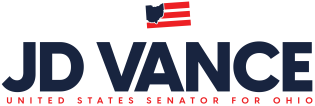WASHINGTON, D.C. – Senator JD Vance (R-OH) sent a letter to Lina Khan, Chair of the Federal Trade Commission (FTC) and Jonathan Kanter, Assistant Attorney General for the Department of Justice (DOJ) Antitrust Division requesting antitrust inquiries into collusive behavior in the higher education system. In his letter, Senator Vance also expresses concerns over allegations of “unlawful coordination among competing colleges and universities” regarding admissions practices.
In a June letter, Senator Vance demanded higher education institutions preserve admissions-related documents and comply with the U.S. Supreme Court’s ruling in Students For Fair Admissions v. Harvard, which found the use of racial preferences in college admissions unconstitutional. The near-identical responses to this letter appear to be the result of careful coordination.
Senator Vance’s letter to Chair Khan and Assistant Attorney General Kanter reads, in part:
“It would raise alarms for federal authorities if other elite schools were to copy Columbia Law School’s recent (and now rescinded) effort to have applicants submit a video statement, thus allowing admissions officers to observe their race. Schools that maintain regular communication and profess shared interests, including an interest in maintaining a ‘racially diverse’ student body, may be tempted to jointly adopt new and experimental policies, such as preferences for low-income students, assured in the knowledge that their competitors will not do otherwise …
“I humbly propose that collusive behavior by colleges and universities, particularly as it relates to new admissions policies adopted in the aftermath of the Harvard College decision, may be a worthy subject for a 6(b) study. For example, it is possible that a hub-and-spoke conspiracy model will be adopted in the wake of Harvard College, with the U.S. News & World Report college rankings serving as the hub.”
Read Senator Vance’s full letter here. Read more from the Washington Free Beacon here.
For Background:
- The higher education system must comply with federal antitrust laws prohibiting coordinated actions to reduce competition and harm consumers.
- In the aftermath of the U.S. Supreme Court’s landmark ruling ending affirmative action in college admissions, questions have been raised whether collusion will occur in the higher education system with the goal of undermining the Court’s ruling.
- Senator Vance has asked federal authorities to determine whether coordinated conduct by colleges and universities violates antitrust laws. Such inquiries would come on the heels of lawsuits that similarly allege unlawful collusion by elite institutions of higher education.
###

